Australian music festivals on the rocks as Bluesfest, Splendour roll
The roll-call of Australian festivals either cancelled or postponed so far this year makes for depressing reading among music fans. Can the industry be saved?
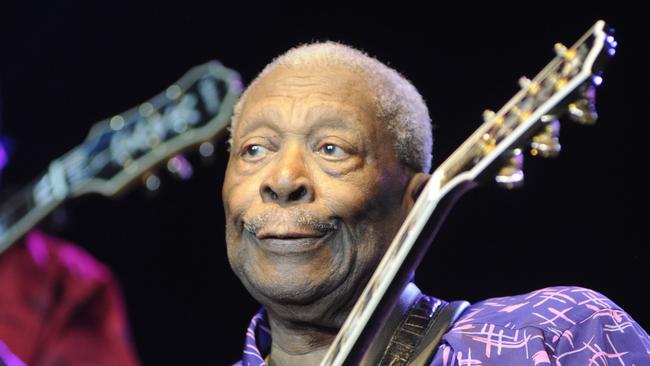
The director of one of Australia’s best-known music festivals broke a golden rule of show business this week: he spoke in absolutes.
“After the 2025 festival, as much as it pains me to say this, it’s time to close this chapter,” Byron Bay Bluesfest impresario Peter Noble said in a statement on Wednesday.
Such finality is rarely recommended in live entertainment, where unwritten maxims guide stars to always leave the audience wanting more, lest their next visit be met with the deafening silence of firmly closed wallets.
But if the Bluesfest boss wanted blood, he got it, for few things set the collective pulse running quicker than a bold warning that a finish line is in sight.
Desperate times call for desperate measures, and Noble’s ominous foreshadowing is only the newest alarm sounded by a leader of a sector in crisis, as operators struggle to hold events in a tough economic climate that’s squeezing players both backstage and front-of-house.
The roll-call of Australian festivals either cancelled or postponed so far this year makes for depressing reading among music fans. Splendour in the Grass, Groovin’ the Moo, Spilt Milk and Harvest Rock are high-profile names all scratched from the calendar; concerningly, all but one of those fell under the umbrella of US-based company Live Nation.
The latter two events didn’t even make it to the line-up announcement stage, and if major events aligned with the global market leader in live entertainment can’t draw headline talent to our shores – atop a bill stacked with other artists from here and abroad – then this ship is being steered into uncharted waters.
This year began with a whimper when the long-running, multistate New Year’s Eve mainstay Falls Festival didn’t happen, after an underperforming 2023 had crowds down and organisers rethinking their booking strategy.
Its absence portended more woe to come and as the months have rolled on, an anxious, swelling chorus has emerged from punters, artists and industry workers alike, who wonder as one: are the nation’s music festivals dying, or merely on life support?
The answer is complicated, and it’s one that Noble has been wrestling with as he’s watched the public response in recent days to his decision to end his long-running event, which will conclude its 36th edition across four days from April 17 to 20, 2025, with a daily capacity of about 25,000 people.
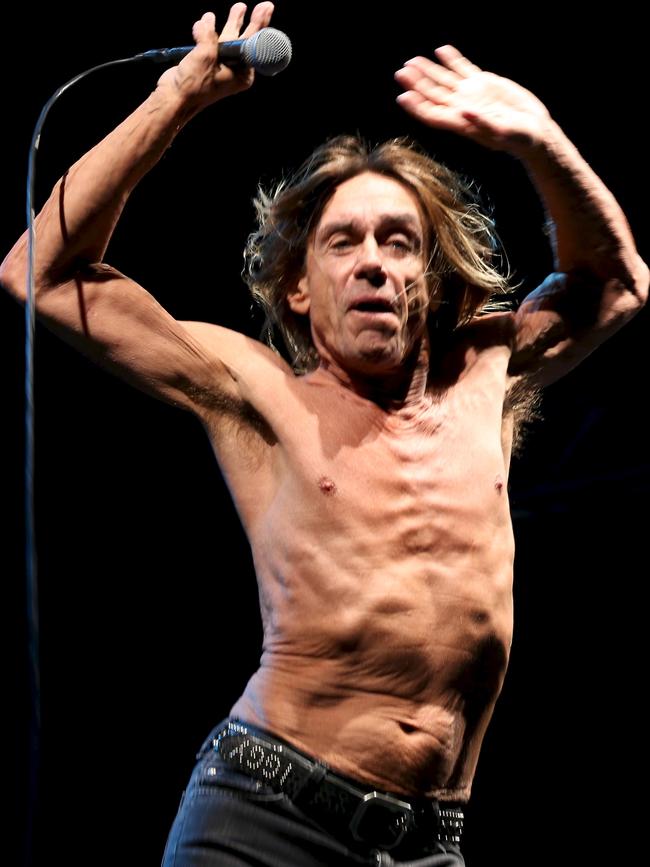
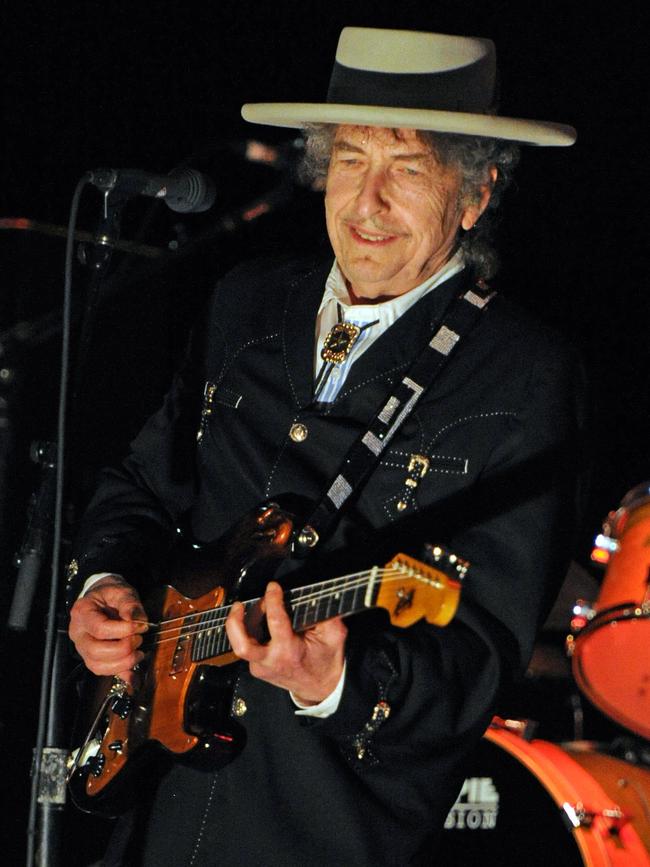
On Thursday, Noble told The Weekend Australian: “We don’t really want to go anywhere; we would love to continue – and judging by yesterday’s ticket sales, the Australian public agrees, because I was floored by the level of sales we had. The general consensus seems to be, ‘No, please, we don’t need another one to go – especially yours. Go and do something about it’. And I’d love to do something about it, but it is the final Bluesfest because we can’t find the way forward, currently.”
As for precisely why he’s calling time – an explanation curiously absent from his announcement this week – Noble, 75, has seen the rush of conjecture, and scoffs at much of it.
“All these hypotheses about costs, and demographic changes, and maybe our audience is now in God’s waiting room, and we can’t find a new audience – it’s all bullshit,” he said. “We just proved it yesterday, in the ticket sales.
“But what we need is a situation where I don’t have to make a decision I can’t make: that is, to perform some sort of harakiri on the event, to disembowel it and present a lesser event.
“I’m not going to do that. I’m not going to kill the legend or the legacy. I work at a very high level of the arts because I’m proud of what we do – and so is my team, by the way, who are 100 per cent behind this decision.”
By calling an end to the Bluesfest era – which began in 1990 with an event for about 6000 blues fans at Byron Arts Factory – Noble and his team stand a fair chance of being carried out on a sea of goodwill while celebrating a proper send-off amid music fans old and new.
In March, another famous multi-day, multi-genre Byron Bay camping event didn’t get that far, when the annual Splendour in the Grass festival – set to be headlined by Australian pop star Kylie Minogue, US hip-hop artist Future and Canadian indie rock act Arcade Fire – was cancelled four months ahead of its usual appearance on the winter calendar in late July.
With a daily capacity of about 50,000 attendees on site at North Byron Parklands, it had grown from a 2001 debut to become one of Australia’s largest music festivals, and was globally known as our domestic equivalent of flagship events such as Coachella in the US and Glastonbury in the UK.
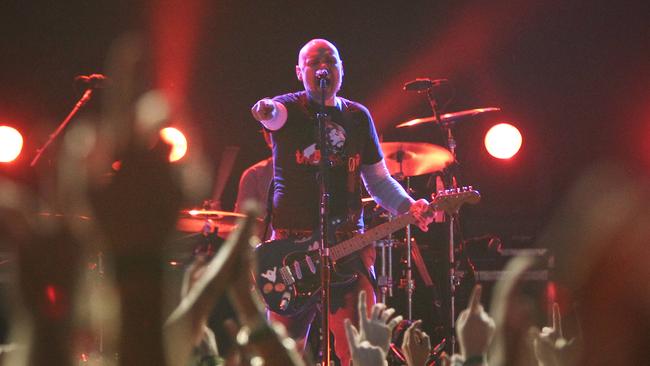
Yet after organisers made the “heartbreaking” decision to pull the plug just six days after tickets went on sale in March, the once-bulletproof Splendour brand is now languishing in limbo, and perhaps unrecoverable.
Asked if anything could have saved the event, festival co-founder Jessica Ducrou told The Weekend Australian, in her first public comments since the cancellation: “I think we did everything that we could, with what was available. I was super happy with the rollout. I didn’t think we put a foot wrong, and I was really proud of the line-up; it felt like a typical Splendour line-up, but fresher.
“We actually didn’t get that much negative feedback about it. There’s nothing that I would have done differently; I don’t think bigger acts would have necessarily solved the broader issue of audience commitment to a long-format event in a regional area that’s expensive.”
The negative feedback, as it were, came in the form of a lack of commitment at the box office: a large group of potential festivalgoers may have liked the artists on offer at Splendour 2024, but they weren’t clamouring for tickets at the earliest available opportunity, as had been the case in the past, when the three-day event had made a habit of selling out immediately each year.
“There wasn’t that ‘fear of missing out’; they thought they could buy a ticket whenever – and they were right,” said Ducrou, 54, who was also co-chief executive of touring company Secret Sounds, in which Live Nation has owned a majority stake since 2016. “There were lots of people afterwards who were like, ‘Oh, I was going to buy my ticket in a couple of weeks’.”
She gave a rueful laugh, and said: “Well, that’s great – but history and experience has told us that you also might not, and so that lack of commitment really does make it very difficult.”
You can’t bank maybes in any business, and especially in live events of this size.
“No, you can’t, because the risk is so high,” she replied. “And in terms of where you’re seeing people spend their money in live (music), it’s in shorter format, more convenient events for the act that they want to see.
“It doesn’t mean it’s going to be like that forever – but right now, that’s generally where people are spending money.”
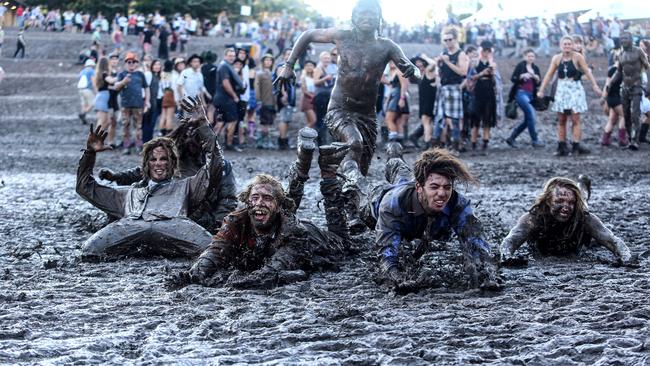
In June, Ducrou announced her departure from Secret Sounds, the company she helped create eight years ago, and whose brands include Falls, Harvest Rock and Spilt Milk; its parent company, Live Nation, declined to comment on the Australian festival sector for this article.
Speaking with Ducrou, however, it’s clear that the cancellation in March still contains a sharp sting of grief, for Splendour in the Grass was an event she had poured her whole self into since 2001, when it began as a boutique winter event headlined by Powderfinger for just 7500 campers.
All festival promoters start as music fans who wish to share their love with audiences, and that passion for creating life-affirming live experiences is what drives them to pursue careers in a fickle, speculative marketplace. There’s a common misconception, however, that Ducrou would like to clarify.
“I think audiences think that festival operators are making tons of money,” she said. “What they don’t appreciate is that you make your profit in the last 10 to 15 per cent of your box office – so you need to sell out to actually profit, and then the degree of what that profit is depends on what your costs are.
“I once showed a traditional business operator a financial model (for festivals), and they couldn’t run fast enough away from the concept of investing, because it is such a high-risk industry. For most events, the capacity is set at a point that allows for profitmaking, but there’s not a lot of headroom.
“That is what’s become untenable coming out of the pandemic: that model just doesn’t survive. It’s like a complete rethink of what makes it viable – because right now, they’re not, and that’s why they’re closing. I don’t think this is the end of festivals – I think it’s just a huge reset, and a retraining of a new audience, and also of festivals presenting what a new audience wants to see.”
Attracting new, youthful audiences has become a specialty for Laneway Festival, which started as a small, Melbourne-only event in 2005 and has since become one of the nation’s biggest travelling music events. In February, its most recent edition – featuring acts such as British hip-hop artist Stormzy and US singer/rapper Dominic Fike – sold about 125,000 tickets across six shows, marking a new annual record for organisers.
The success of its run of single-day, inner-city events doesn’t make it any easier for Laneway co-founder Danny Rogers to watch on as the sector suffers, however.
“The festival industry is the most challenged it’s probably ever been,” said Rogers, 49. “I feel really sad for people that have put so much love and attention into putting on shows.
“But … it’s not like people don’t go to shows; it’s not like people don’t want to have communal experiences, and it’s not like people are suddenly not interested in music – they’re just becoming more and more discerning.
“There’s certainly challenges that we all face – insurance escalations, cost of operation – and there’s still luck and timing, but that’s always been the case.”
Chris O’Brien, general manager of tour promoter Destroy All Lines, concurs with Rogers. “I think it’s fair to say we’ve never experienced a year like it in the history of Australian music, that’s for sure, where so many flagship events are calling it a day,” he said.
“We still feel really buoyant about it,” said O’Brien, who promotes the alternative music festival Good Things and co-promotes heavy metal event Knotfest.
“But I think the issues we’re having are the same as other promoters: it’s just becoming so incredibly expensive to put these events on, coupled with the amount of red tape the (state) governments throw at you, and the expense of putting these things on with police and insurances, and things that are completely outside of our control.
“I can really see why some festivals are just calling it a day, because our jobs are just getting harder and harder,” said O’Brien, 51. “I think the market is still there; I think people still want to go to festivals, as long as they are programmed well, and people just aren’t assuming the brand is going to sell.”
With his decades of experience, Peter Noble knows well that a brand name only goes so far in the current economic climate.
Attendances at Byron Bay Bluesfest across its two most recent events, in 2023 and 2024, didn’t come close to matching the 100,000 or so that flocked to its successful return in 2022, where Midnight Oil, Paul Kelly, Crowded House and Jimmy Barnes performed to bumper crowds hungry to re-engage with live music after a Covid pause.
More than simply sounding the alarm this week, though, Noble is outright calling for government support for the festival sector – a suggestion that would have been far-fetched five years ago.
But the pandemic forced the music industry to plead its case for emergency funding with federal and state ministers, who until that point were more than happy to let the sector operate as commercial entities that lived or died in an open market.
“I’ve been trying to say to government in my state – and federally – for some time: we are having an extinction event for the festival industry,” Noble told The Weekend Australian.
“It is the actions of the Reserve Bank of Australia, with (high) interest rates, which are created to curb discretionary spending, that are having an incredible effect on the music industry.
“We’re not the only industry; I think restaurants aren’t doing very well. But what do you do when a policy that is created to curb inflation is having effects on certain industries that threaten their existence? What is the next step the government makes?
“Do they go, ‘OK, we’re willing to allow those industries to fail’, or ‘We’re going to find some way for them to get through this’ – just like what happened in Covid, with the RISE grants, and keep the industry working?
“This is like the Titanic: the iceberg is hit, the ship is sinking, and the musicians are about to go down with it, because the lifeboats have all set sail and saved someone else.
“I can afford to retire, but I care about my industry; I’m nearly 60 years into it. But if Bluesfest is the canary in the coal mine, there’s been a lot of bloody canaries, and everyone’s let them die.”




To join the conversation, please log in. Don't have an account? Register
Join the conversation, you are commenting as Logout